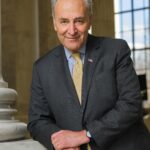Reassessing Trump’s Role in Global Diplomacy
As the international political arena faces increasing instability and fragile partnerships, former President Donald Trump has frequently portrayed himself as a potential mediator on the global stage. His assertions of being a skilled negotiator capable of reconciling differences have sparked both enthusiasm and skepticism, necessitating a deeper analysis of his diplomatic strategies. In an era where strategic alliances are crucial, this article delves into the nuances of Trump’s foreign policy legacy, questioning whether his self-perception as a peace broker aligns with the realities observed during and after his presidency. By examining pivotal moments and their consequences, we aim to clarify the complexities surrounding Trump’s diplomatic efforts and evaluate their true impact on global relations.
Trump’s Diplomatic Strategies Lack Depth
Throughout his administration, Trump’s method for engaging with other nations often favored personal diplomacy over established diplomatic frameworks. This approach has resulted in a mixed legacy that many critics argue fails to achieve meaningful peacemaking outcomes. Rather than promoting collaborative negotiations, his strategies frequently leaned towards unilateral actions and social media announcements that weakened traditional alliances. Consequently, significant issues were often tackled in fragmented ways rather than through comprehensive plans aimed at fostering long-term stability.
Although Trump highlighted initiatives like the unprecedented summit with North Korea and the Abraham Accords in the Middle East as successes, these efforts have been criticized for not adequately addressing regional complexities. Essential elements of effective diplomacy include:
- Consistency: Establishing dependable methods over time to cultivate trust.
- Multilateral Engagement: Involving all relevant parties to promote inclusive solutions.
- Sustained Vision: Recognizing that achieving peace is typically an incremental process requiring ongoing commitment.
The transactional nature of Trump’s dealings has often been perceived as an obstacle to authentic peace since it may prioritize immediate political benefits without tackling fundamental issues driving conflicts.
Evaluating Trump’s Policies’ Impact on Global Stability
The foreign policy measures enacted during Trump’s presidency have drawn considerable scrutiny from scholars and practitioners within international relations. A primary concern is that Trump’s tactics tended to favor unilateral decisions over collaborative diplomacy, resulting in heightened tensions across various regions. Notable instances include:
- Pulled Out from Paris Agreement: This move not only undermined worldwide efforts against climate change but also alienated allies committed to joint action.
- Tariff Initiatives: The imposition of tariffs particularly against China triggered economic disturbances affecting global markets and supply chains.
- Mideast Policy Shifts: His backing of Israel’s policies was perceived as destabilizing, altering perceptions regarding U.S neutrality in ongoing disputes.
Additionally, concerns about NATO emerged due to Trump’s questioning of collective defense agreements while urging European nations to increase military spending—this rhetoric raised fears about potential fractures within transatlantic relationships. The table below summarizes key events defining this intricate landscape:
| Date | Description | Ecosystem Impact |
|---|---|---|
| 2017 | Pulled out from Paris Agreement | Aggrevated global climate crisis response efforts |
Effective Leadership Approaches for Conflict Resolution
Navigating today’s polarized political environment requires leaders engaged in conflict resolution not just rely on rhetoric but adopt practical approaches rooted in empathy alongside strategic communication techniques. Leaders must first recognize valid concerns from all involved parties while creating spaces conducive for open dialogue—this involves active listening coupled with genuine understanding which can foster collaboration among differing viewpoints.
Key strategies encompass:
- Establishing Trust: Building credibility is vital for leaders aiming at gaining constituents’ confidence.< / li >
- Identifying Common Interests: Recognizing shared goals can redirect discussions towards constructive resolutions instead divisiveness.< / li >
- Encouraging Transparent Communication: Maintaining openness ensures stakeholders remain informed thus reducing misunderstandings.< / li >
< / ul >An additional critical component involves adeptly navigating complexity amid uncertainty; employing mediation techniques focused more upon collaboration rather than competition becomes essential here too! Willingness toward compromise along considering diverse perspectives when crafting solutions proves invaluable! A structured negotiation framework could be outlined through these steps:< / p >
Step< / th > Description< / th > tr > < td >< b >1 . Identify Conflict< / b > td >< td >Clarify underlying issues while comprehending every aspect surrounding disagreement .< / td > tr > < td >< b > 2 . Engage Stakeholders< / b > td >< td Bring together all relevant parties ensuring every voice gets heard .< / td > tr > < td >< b >3 . Explore Solutions< / b > td >< td Collaboratively brainstorm possible resolutions satisfying core interests across board .< / td > tr > < td >< b >4 Implement & Review td >< td Execute agreed-upon solutions monitoring outcomes ensuring effectiveness. Conclusion & Future Directions
In summary , although Donald Trump presents himself as a peacemaker amidst turbulent international dynamics , evidence indicates otherwise revealing greater complexity beneath surface level claims ! His diplomatic style tends toward undermining established alliances disregarding protocols leading instead heightened tensions rather than resolution ! As world leaders confront implications stemming from such strategies , one question remains : Is United States heading towards confrontation or can genuine peace emerge under divisive banner ? Moving forward may depend less upon self-proclaimed titles yet more substantively based actions taken under guise diplomacy ! With geopolitical landscapes evolving continuously , stakes concerning both domestic/international stability rise higher than ever before !









